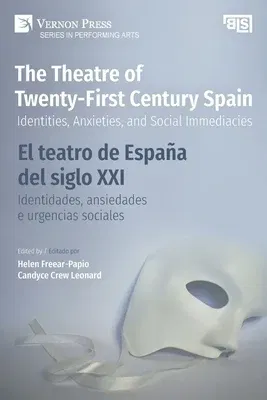Identifying, naming, and belonging lend a sense of rational order, a
feeling of rootedness within specific societies and eras, yet that order
may collapse and threaten to undermine the predictability that ensures
stability. As Spain enters only its fifth decade as a fully democratic
nation, the country's identity is unfocused and disorganized as it
continues to reckon with its traumatic past.
The nine research essays presented in this volume, all on plays authored
in the twenty-first century, aim to address the myriad of complex social
immediacies that impact Spain in the twenty-first century. Such topics
include: non-heteronormative gender identity; "fake news" and how facts
are interpreted, withheld, or distorted; female self-agency and
authorship; violence against women; and the ongoing need for justice for
family histories that have been erased and repressed by Spain's
inability to resolve its recent past.
Identificar, nombrar y pertenecer brinda un sentido de orden racional,
un sentimiento de arraigo dentro de sociedades y épocas específicas,
pero ese orden puede colapsar y amenazar con socavar la previsibilidad
que asegura la estabilidad. A medida que España entra en su quinta
década como una nación totalmente democrática, la identidad del país
está desenfocada y desorganizada mientras continúa teniendo en cuenta su
pasado traumático.
Los nueve ensayos de investigación presentados en este volumen, todos
sobre obras de teatro de autor del siglo XXI, pretenden abordar la
miríada de complejas inmediateces sociales que impactan en la España del
siglo XXI. Dichos temas incluyen: identidad de género no
heteronormativa; "noticias falsas" y cómo se interpretan, ocultan o
distorsionan los hechos; auto-agencia y autoría femenina; la violencia
contra las mujeres; y la continua necesidad de justicia por las
historias familiares que han sido borradas y reprimidas por la
incapacidad de España para resolver su pasado reciente.


